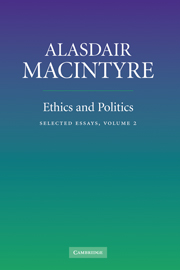6 - Truthfulness and lies: what is the problem and what can we learn from Mill?
Published online by Cambridge University Press: 27 January 2010
Summary
When children are young, they learn that it is wrong to lie, but the rule that they learn varies from culture to culture and sometimes within cultures. For some lying as such is prohibited. For others some types of lie is permitted or even enjoined, but about which types of lie are permitted or enjoined there are also significant differences. It is not difficult to understand why. Among those types of lie that are often permitted or enjoined in different social orders are protective lies, lies designed to defend oneself or one's household or community from invasive hostility, perhaps from religious persecutors or witches or the tax-collectors of some alien power, or to shield the vulnerable, perhaps children or the dangerously ill, from knowledge thought to be harmful to them. Since who is judged to need protection from what varies from one social and cultural order to another, which of these types of lie is permitted or enjoined can be expected to vary accordingly. But these are not the only types of exception that are sometimes accorded social recognition and sanction, And, unsurprisingly, reflection upon how the rule that provides for such different types of exception should be formulated and justified commonly gives rise to controversy. Consider as one contributor to those controversies a moral tradition that belongs to the background history of our own moral culture.
- Type
- Chapter
- Information
- Ethics and PoliticsSelected Essays, pp. 101 - 121Publisher: Cambridge University PressPrint publication year: 2006



